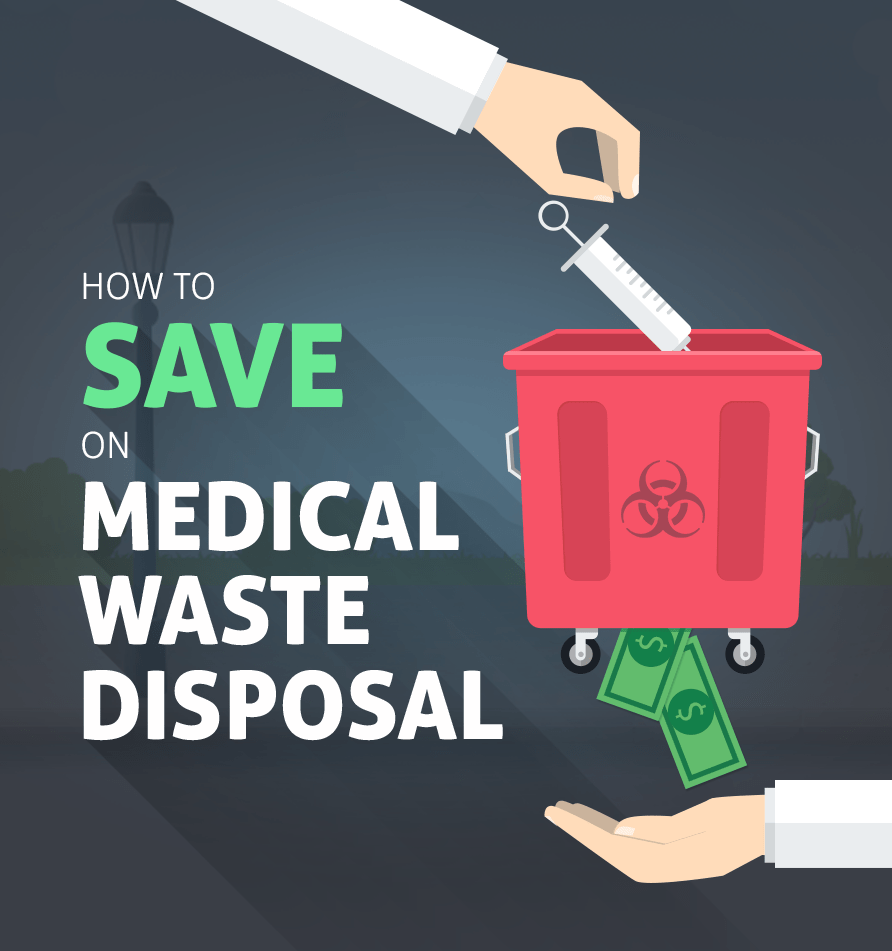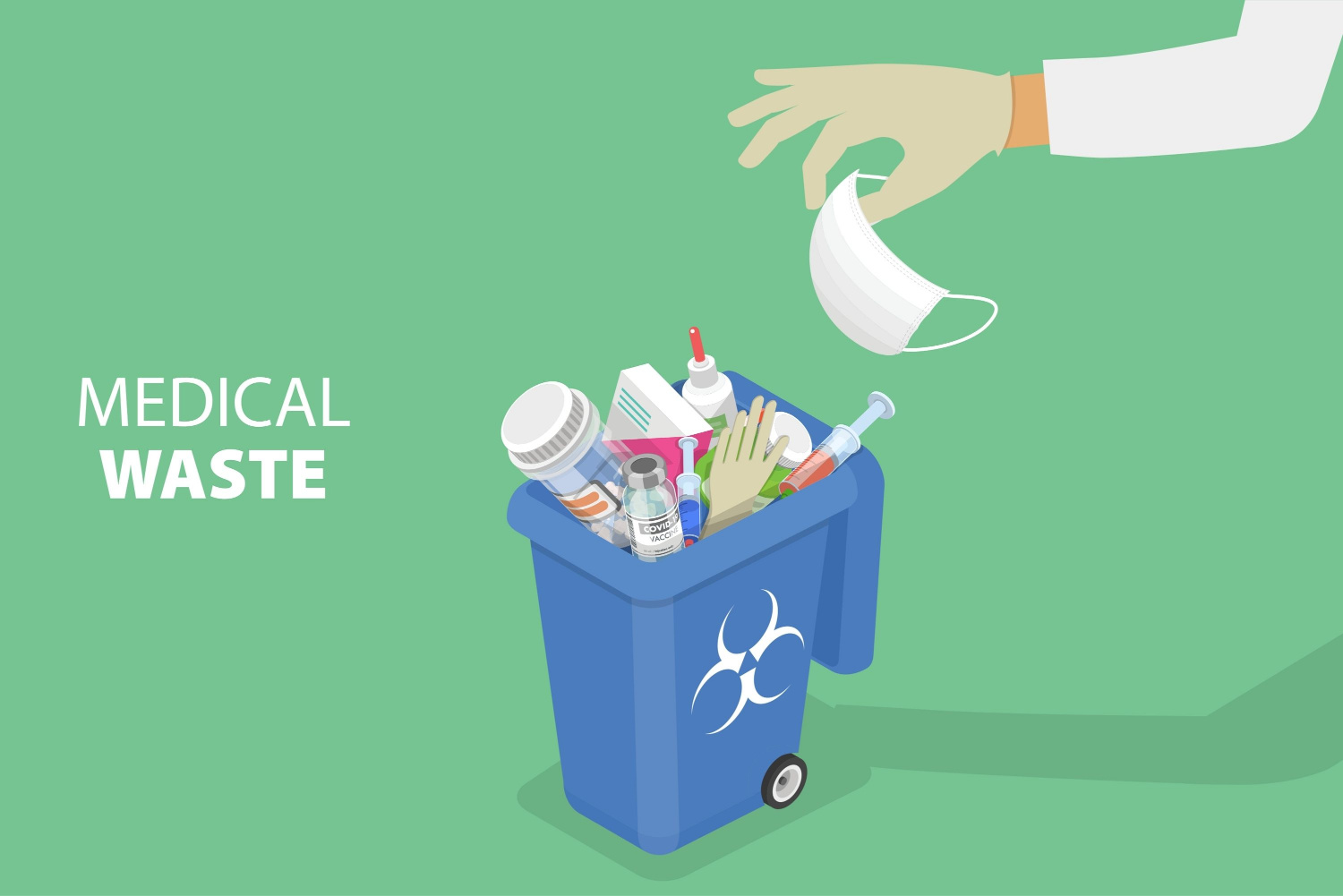Guaranteeing Safe Handling and Disposal of Medical Waste
Ensuring risk-free handling and disposal of clinical waste is of extremely important relevance in healthcare settings. Improper monitoring of clinical waste can position substantial risks to the environment, public wellness, and medical care employees. This requires adherence to strict guidelines and protocols for its secure handling and disposal. In this intro, we will check out the importance of correct clinical waste monitoring, the threats related to inappropriate handling and disposal, in addition to the standards and techniques that can be carried out to guarantee its secure disposal. Additionally, we will discuss the significance of training and education and learning for health care experts in order to keep a tidy and risk-free medical care atmosphere. By complying with these techniques, we can efficiently mitigate the possible dangers connected with medical waste.
Importance of Appropriate Clinical Waste Administration
Appropriate clinical waste management is of utmost significance in guaranteeing the safety and well-being of health care experts, clients, and the public. Clinical waste describes any kind of waste generated by medical care facilities during the medical diagnosis, therapy, or booster shot of animals or people. This waste can position serious health and wellness dangers if not taken care of and thrown away correctly.
Among the key reasons why proper medical waste monitoring is crucial is to stop the spread of transmittable conditions. Clinical waste, such as used needles, polluted dressings, and biological materials, can lug unsafe pathogens. Otherwise taken care of and dealt with appropriately, these microorganisms can be sent to health care employees, patients, waste trainers, and also the public, resulting in the possible break out of diseases.
In addition, correct medical waste management helps safeguard the environment - medical waste removal. Clinical waste includes hazardous products, including chemicals, drugs, and radioactive materials. When not managed suitably, these substances can contaminate dirt, water bodies, and the air, posturing a substantial risk to environments and public health and wellness
In addition, effective clinical waste administration makes sure conformity with neighborhood regulations and international requirements. Governments and regulative bodies have developed guidelines and protocols to guarantee the secure handling, storage space, transport, and disposal of clinical waste. Complying with these policies is necessary to avoid legal consequences and maintain the credibility and reputation of medical care centers.
Dangers of Improper Handling and Disposal

If medical waste is not appropriately disposed of,Individuals can also be subjected to these transmittable diseases. If polluted needles or various other sharps are not disposed of in assigned puncture-proof containers, they might mistakenly prick people, leading to potential infections. Furthermore, if medical waste is not set apart correctly, there is a threat of cross-contamination in between various kinds of waste, further boosting the opportunities of illness transmission.
Incorrect disposal of clinical waste can also have detrimental results on the atmosphere and the basic public. If clinical waste is not dealt with and dealt with appropriately, it can contaminate water sources, dirt, and air, leading to the spread of contaminants and illness. This can have lasting consequences on ecological communities and public wellness.
Standards for Safe Handling of Medical Waste
Carrying out reliable protocols for the risk-free handling of clinical waste is crucial in making sure the security of healthcare specialists, people, and the public. These guidelines are critical in reducing the risks associated with the handling and disposal of medical waste, such as infections, injuries, and environmental contamination.
Firstly, medical care facilities must establish a comprehensive waste monitoring strategy that abides by neighborhood, national, and international policies. This strategy should consist of clear instructions on waste segregation, packaging, transport, storage space, and labeling. It is vital to divide various kinds of waste, such as sharps, infectious materials, pharmaceuticals, and non-hazardous waste, to avoid cross-contamination and advertise secure disposal.
In addition, health care personnel have to get comprehensive training on appropriate waste handling methods. They ought to be educated on the possible hazards of clinical waste, the ideal use of personal protective devices (PPE), and the appropriate procedures for taking care of, transporting, and dealing with different kinds of waste.
Moreover, health care facilities ought to consistently monitor and audit their waste administration techniques to make sure conformity with standards. This includes performing routine evaluations, examining waste handling treatments, and supplying comments and training to team participants.
Reliable Techniques for Garbage Disposal
To ensure the secure handling and disposal of clinical waste, it is necessary to utilize efficient strategies for garbage disposal. Clinical waste can present substantial dangers to public health and the atmosphere if not taken care of and dealt with appropriately. Consequently, health care centers and waste administration organizations should apply suitable methods to alleviate these threats.
It involves dividing various kinds of clinical waste based on their features. Medical care facilities need to offer clear guidelines and training to staff members on exactly how to segregate waste properly.

Additionally, health care centers need to team up with accredited waste monitoring business to make sure correct disposal of clinical waste. These companies have the expertise and devices required to safely deal with and dispose of medical waste in compliance with policies and finest techniques.
Training and Education And Learning for Healthcare Professionals
Medical care specialists play an essential role in making certain the secure handling and disposal of medical waste through extensive training and education and learning. It is necessary for doctor to have a deep understanding of the possible threats related to clinical waste and the correct protocols for its monitoring. By receiving proper training, medical care specialists can decrease the potential transmission of transmittable illness, protect against ecological contamination, and protect both themselves and the public.

Furthermore, training programs need to emphasize making use of individual protective equipment (PPE) and appropriate hand hygiene practices when dealing with clinical waste. medical waste disposal. Healthcare experts must recognize exactly how to correctly dispose and utilize of PPE to safeguard themselves from possible direct exposure to unsafe products. They need to additionally be educated on the relevance of regular handwashing and the appropriate use hand sanitizers to decrease the spread of contagious conditions
Proceeding education and learning and regular updates on clinical waste monitoring techniques are essential for medical care experts. As guidelines and guidelines develop, it is important to maintain health care providers notified regarding any type of adjustments in protocols and finest techniques. This will guarantee that they remain updated and keep a high criterion of safety in managing and getting rid of of medical waste.
Final Thought
In verdict, proper handling and disposal of medical waste is great site important to make certain the safety and security of healthcare experts, individuals, and the atmosphere. By adhering to these methods, we can alleviate the possible dangers linked with medical waste.
Clinical waste refers to any kind of waste created by medical care facilities during the medical diagnosis, therapy, or immunization of humans or pets. If clinical waste is not set apart correctly, there is a risk of cross-contamination between various types of waste, additional boosting the possibilities of illness transmission.
It is essential to divide various types of waste, such as sharps, transmittable products, pharmaceuticals, and non-hazardous waste, to protect against cross-contamination and advertise secure disposal. WasteX Medical Waste Disposal.
To make certain the safe handling and disposal of medical waste, it is essential to employ reliable approaches for waste disposal. Additionally, medical care facilities need to develop a regular waste collection and transport timetable to stop waste buildup and minimize the threat of crashes or contamination.